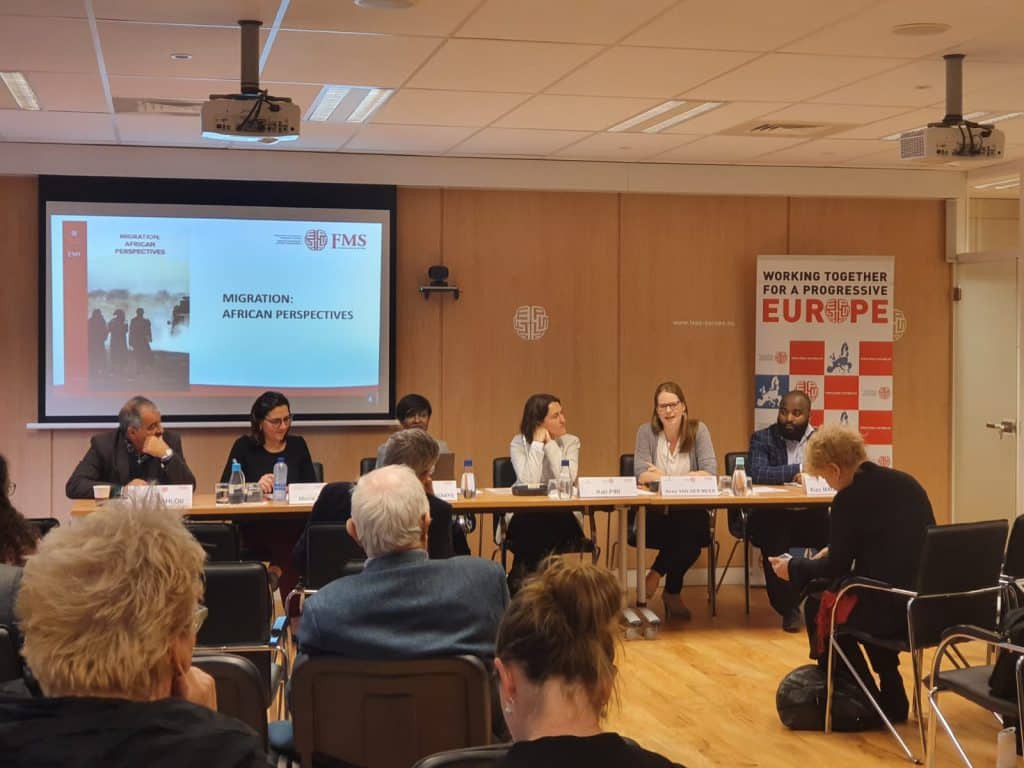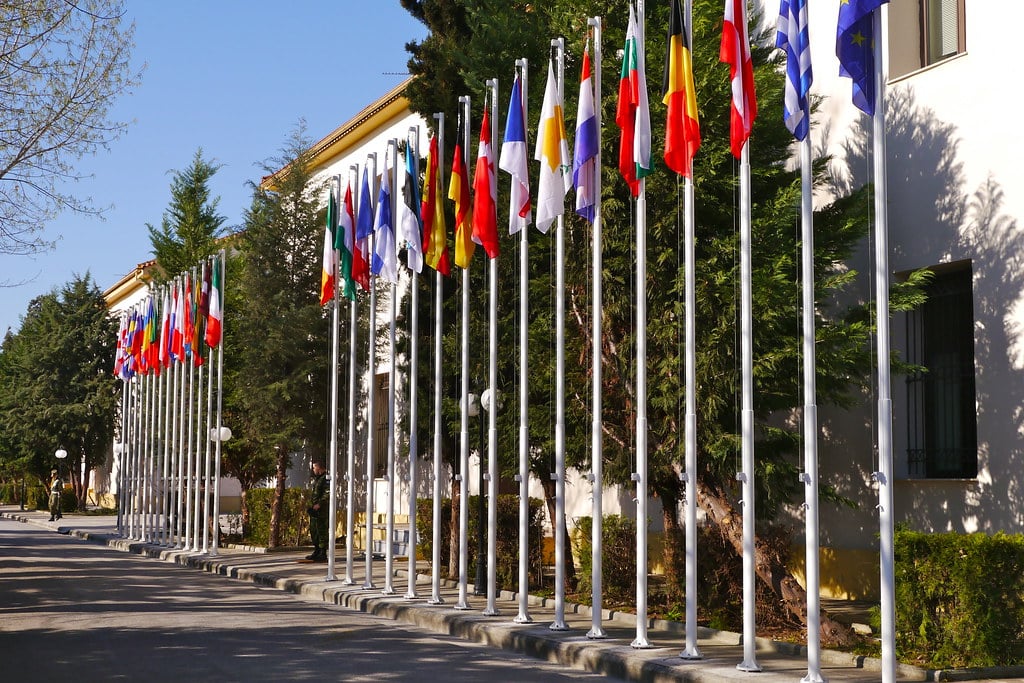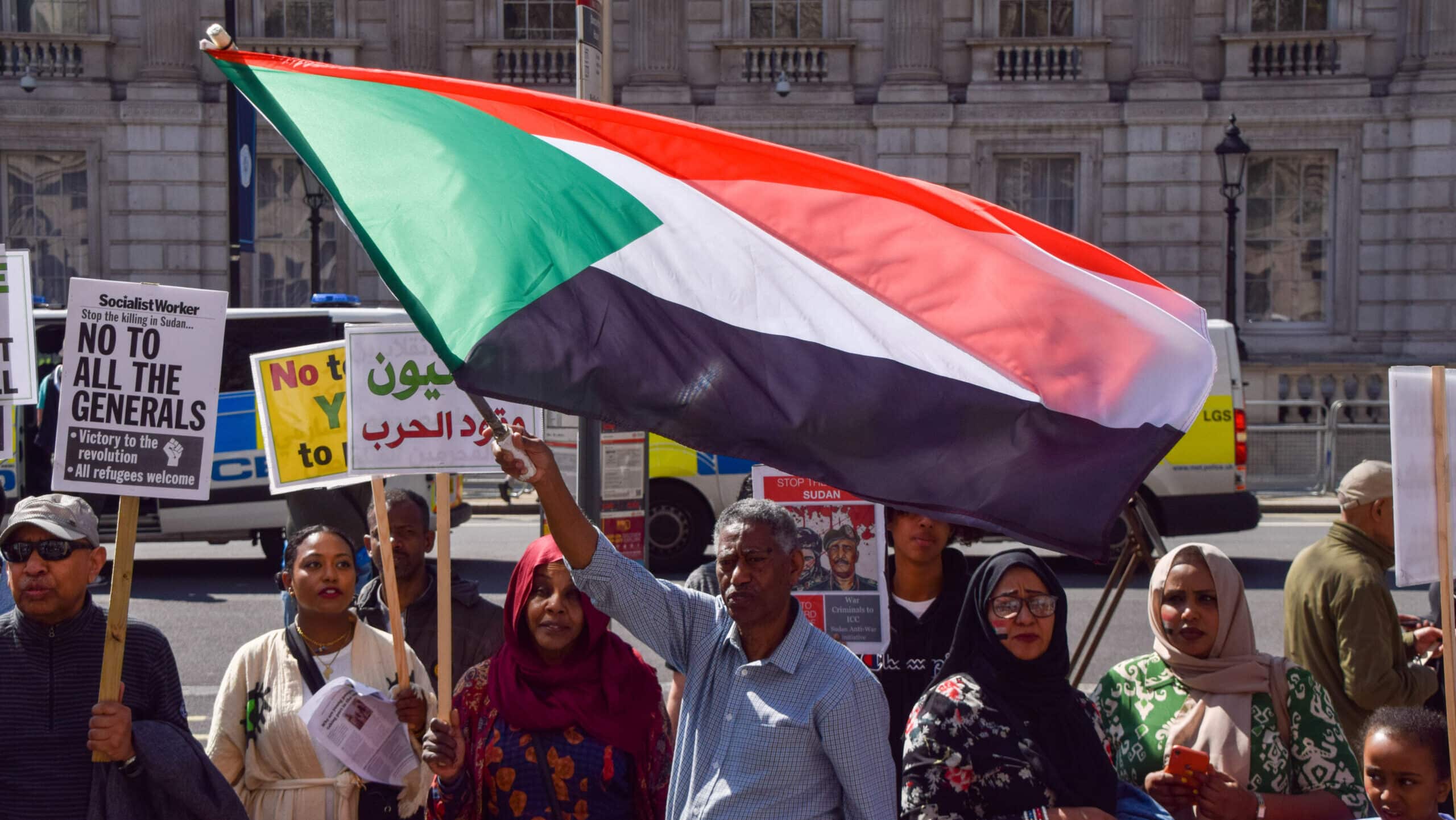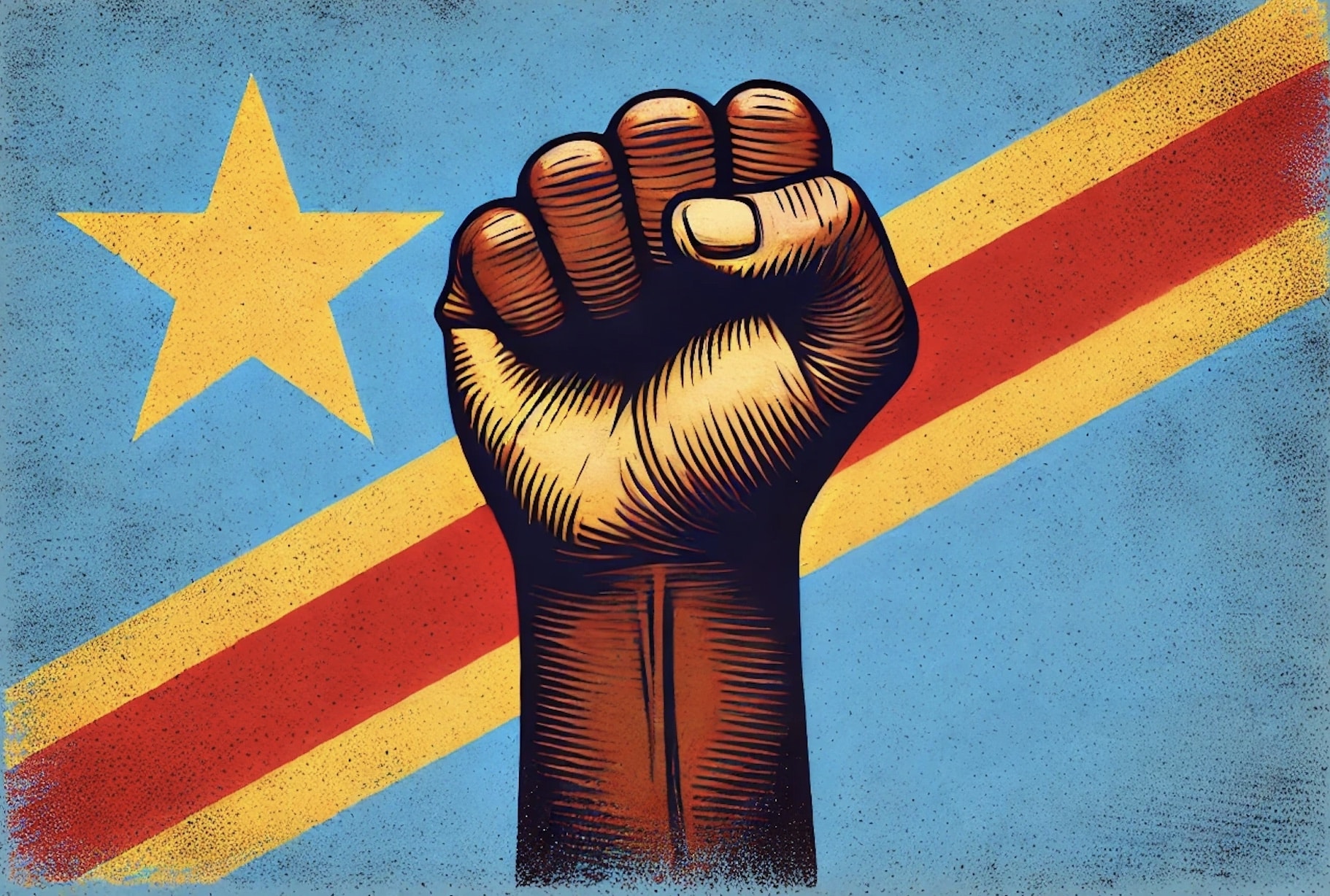Are EU responses focusing on tackling the 'root causes' of migration effective? Are they sufficient? And how can we improve those migration policies? Last Tuesday, 18 February, we presented our newest report Migration: African perspectives. This report, in cooperation with our partner Foundation for European Progressive Studies (FEPS), shows how crucial it is to include African perspectives when discussing migration policies. As was mentioned during the presentation in Brussels: "We should not talk about Africans, but speak with them".
Migration has been the key topic on the political agenda since 2015. In the aftermath of the large increase of, mainly, Syrian refugees into Europe, regular migration issues became intertwined with the issue of refugees. Since then, EU policies started to focus on tackling the 'root causes' of migration. Consequently, development budgets became intertwined with migration issues.
A progressive perspective
After the presentation by our FMS colleague and the author of the publication, Anne van der Meer, Vice-Chair of the S&D Group in the European Parliament Kati Piri, gave a first response. Migration issues sometimes have the ability to make her feel "torn apart in two pieces". Studies like this one are crucial as it are figures that will help lead the debate on migration, rather than feelings.
In her response, Kati emphasised the importance of spending the development budget on developmental issues. For example, it cannot be the case that 60% is spend on border controls, which could also lead to gross human rights violations. The new Africa strategy (expected in March) will be one of the key policy areas progressives would want to engage more in. One of the panelists, Mehdi Lahlou, senior researcher at the University Mohammed V in Rabat, strongly agreed. The EU should spend more on development, and less on arms sales, border control, etc. In short, the EU should really make fair policies towards African countries a priority.
The time has come for a right frame
From the session it became clear that the time has come to discuss the delicate themes surrounding the issue of migration with African partners. According to Kati the "right frame is needed", partnerships between the EU and Africa cannot solely be about our labour needs. It is not right to say "let's take Africans for this", just to fill up vacancies within companies. The narrative surrounding labour migration should foremost focus on the quality of the jobs themselves, something especially important from a progressive perspective. According to Kiza Magendane, author and Knowledge Broker on migration, the topic of migration is indeed in need of a new narrative: "It is important for Africans to develop their own narrative". This research is a first step in doing so, as it takes the African perspective into account. Migration is a highly complex issue and Kiza successfully challenged the audience to think beyond the existing frameworks.
Structural problems
One important recommendation in the report is that the EU and its member states should reaffirm their commitment to spend 0.7% of GDP on development assistance. However, as repeated by different panel members, this is not sufficient. A fair and equal partnership with the African continent is needed. As Yaye Helene Ndiaye, Programme Officer for Africa Governance and Advocacy Project, stated, "Africa is not poor. Our issues are governance issues and thus largely structural".
There have been leadership problems in many countries, and therefore the EU should stop supporting such dictators. Above all, it is very important that the they help the African Union in supporting their vision, which is embedded in the Agenda 2063. One key element is to reach free movement of people on the continent. As shown by the input of Yaye, bilateral agreements between European and African countries often hinder this vision. This shows the importance of speaking with African stakeholders to really reach fair EU migration policies.
A take home message
The session in Brussels clearly demonstrated the importance of taking into account the African perspectives when talking about migration policies. A crucial way to do so is to involve the African diaspora into the debate of migration. The diaspora is culturally invested in both countries and can therefore form a bridge between migration and development. Also, it is important to not forget that migration is a human rights issue. Talking about migration should therefore be done in light of human rights. Something that is too often lacking in discussions or debates. For all of our recommendations, check our newest report Migration: African perspectives now!





